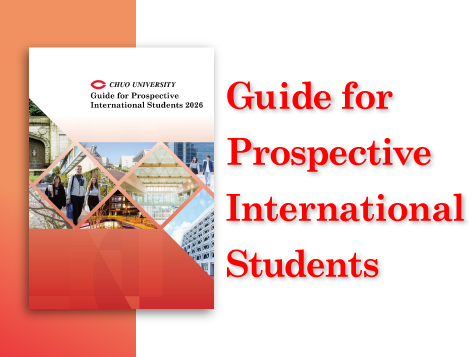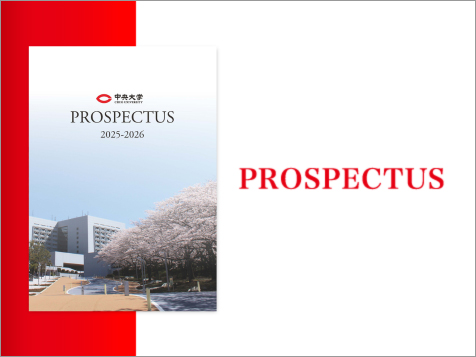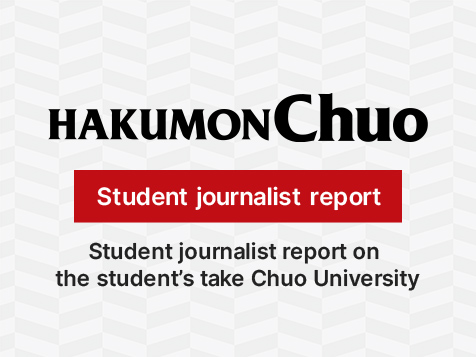Academics
Graduate School of Letters
The program consists of 13 courses: Japanese Literature, English Studies, German Studies, French Studies, Chinese Studies, Japanese History, Asian and African History, European and American History, Philosophy, Sociology, Socio-Informatics, Education, and Psychology. Students can take a wide variety of courses beyond the boundaries of their own major in addition to specialized courses in their own major. This enables students to acquire an advanced and deep education from a broad perspective through a combination of courses in their own specialized fields and courses across majors. In addition, as a substantial research support system for degree acquisition, each major has its own "Joint Research Office" with a large collection of related materials, journals, books, and other specialized periodicals, as well as a variety of journals for each major, research presentation meetings, and other opportunities to present research and publish their research findings. The Graduate School of Letters fosters human resources who can contribute to the globalized and highly information-oriented modern society, from local communities to international society, by focusing on the inner life, society, and history of human beings as research subjects. Our alumnae and alumni are active in their fields, using their highly specialized knowledge.

Thirteen ways to wander a world of academic knowledge: Depart on a voyage of academia with your nautical chart in hand
What is the difference between trivia and academics? Trivia may be defined as the unstructured accumulation of unrelated or loosely related facts and details. Therefore, according to Shogakukan Unabridged Dictionary of the Japanese Language, trivia refers to knowledge “that has not been made the subject of specialized or systematic study.” In contrast, academic knowledge is acquired through structured research and inquiry. Thus, the nature of knowledge gained through trivia differs fundamentally from that obtained through academic learning.
Nowadays, many people acquire knowledge primarily through information retrieved from the internet. The “answers” provided by AI may appear to be consistent knowledge. However, since these answers are assembled from scattered and disorganized information found online, arranged merely in a coherent format, they essentially amount to little more than trivia. The thing is, no matter how much we keep searching on the internet and accumulating knowledge by asking AI, it is the algorithm behind search engines that improves more, not the knowledge on the searcher’s side. In other words, we cannot issue prescriptions for the immediate real-world challenges nor gain insights necessary to broaden our perspectives or to envision the future.
Interestingly, the term “algorithm” is derived from the name of al-Khwārizmī (lived around 780 to 850), a renowned Arabian mathematician and astronomer who was active during the first half of the 9th Century. While serving under Caliphs of the Abbasid dynasty, he inherited the tradition of mathematics from the Ancient Near East to India. His achievements were translated into Latin in the 12th Century, profoundly influencing the development of mathematics in medieval Europe. The mathematical term “algebra” also traces its origin to his literary work. Remarkably, the modern internet search terminology is linked to the Arabian mathematics of 1200 years ago. Yet this connection is far from irrational. Unraveling the previous studies and broadening our perspectives from al-Khwārizmī, we can catch a glimpse of the significant roles that the advanced Arabian studies in mathematics, astronomy, medicine, and other fields played in laying the foundations of science in Europe. Al-Khwārizmī stands as a prominent example within this vast and interconnected historical composition.
We can easily find that the origin of “algorithm” is Arabic by searching online; however, we can only gain a piece of trivia if we stop pursuing. On the other hand, it is only when we study the long and complex history woven by the Islamic world and the European world broadly and systematically, we can shed light from a different angle on the conflicts of these two worlds, which seems to be extremely chaotic now, and reveal the underlying essence of the issues. In this way, gaining academic knowledge, the systematic study of liberal arts, enables us to reexamine established facts through new lenses and broaden our horizons.
The Graduate School of Letters comprises 13 majors, covering a vast research field related to humanity and society. Each major provides a precise guide for helping students navigate through the vast ocean of the academic world, and eventually students will develop the ability to figure out the essence of issues and make accurate decisions. We believe such intellectual capacity can only be cultivated through in-depth study. We warmly invite you to embark on this academic journey with us!
Shigeki ABE
Dean, Graduate School of Letters









